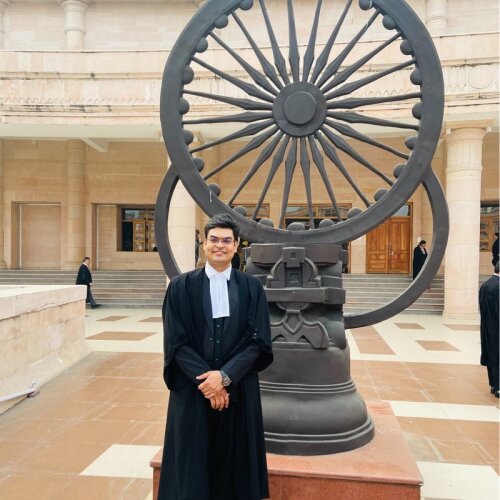Best Whistleblower & Qui Tam Lawyers in India
Share your needs with us, get contacted by law firms.
Free. Takes 2 min.
Or refine your search by selecting a city:
List of the best lawyers in India
About Whistleblower & Qui Tam Law in India
The concept of Whistleblower and Qui Tam laws in India involves legal measures that protect individuals who report corruption, fraud, or misconduct within organizations. These laws aim to encourage transparency and integrity by safeguarding whistleblowers against retaliation. Although still evolving, whistleblower protections constitute an essential part of India's move towards accountability and ethics in governance.
One prominent legislation in India is the Whistle Blowers Protection Act, 2014, designed to protect individuals who expose wrongdoing in government bodies, projects, and offices. While the Act aims to provide a framework for whistleblower protection, its implementation and effectiveness have been a topic of discussion and development.
Why You May Need a Lawyer
There are several scenarios where one might require legal assistance in the realm of Whistleblower & Qui Tam law:
- Reporting Misconduct: If you are considering reporting unethical or illegal activities within your organization, a lawyer can advise you on your rights, the process, and the potential risks involved.
- Retaliation Protection: If you face retaliation after exposing misconduct, legal counsel can help navigate the protection mechanisms and seek redress under relevant laws.
- Understanding Legal Obligations: Legal professionals can clarify your obligations under existing whistleblower laws and help ensure compliance with any procedural requirements.
- Qui Tam Actions: If you are involved in a Qui Tam action, where you might receive a portion of recovered funds, legal assistance is vital to understanding the complex legal processes and maximizing your claim.
- Confidentiality Concerns: A lawyer can advise on maintaining confidentiality and the legal implications of disclosure under whistleblower laws.
Local Laws Overview
The key legislation governing whistleblowers in India is the Whistle Blowers Protection Act, 2014. The Act primarily aims to protect individuals who disclose information on corruption or misconduct in government entities. Here are some critical aspects:
- Protection from Victimization: The Act seeks to protect whistleblowers from victimization or disadvantage in their employment due to their disclosures.
- Anonymous Complaints: Initially, the Act allowed anonymous disclosures, though amendments proposed require revealed identity for filing complaints, raising concerns about the safety of whistleblowers.
- Penalties for False Complaints: False or frivolous complaints can attract penalties under the Act, underscoring the need for genuine and substantial disclosures.
- Investigation Process: The Act outlines the procedures for inquiry and investigation by competent authorities into the concerns raised by a whistleblower.
Frequently Asked Questions
What is the purpose of the Whistle Blowers Protection Act, 2014?
The Act aims to encourage transparency and accountability by protecting individuals who report wrongdoing in government organizations, projects, and offices.
Are whistleblowers protected from retaliation?
Yes, the Act offers protection to whistleblowers from victimization, but the effectiveness of this protection depends on its implementation and the legal mechanisms available.
Can I report anonymously under the Whistle Blowers Protection Act?
Initially, anonymous reporting was allowed, but recent amendments suggest revealing the identity might be mandatory, raising legal and safety concerns.
What is Qui Tam, and does it apply in India?
Qui Tam refers to legal proceedings where whistleblowers receive a share of recovered funds in fraud cases. This concept is not well established in Indian legislation but could evolve.
What should I do if I face retaliation after whistleblowing?
Seek legal advice immediately to understand your rights under the Whistle Blowers Protection Act and to initiate any necessary legal actions for protection and redress.
Are there penalties for making false whistleblower complaints?
Yes, the Act imposes penalties on individuals who make false or malicious complaints, emphasizing the need for honest and well-founded reports.
What type of wrongdoing can I report?
You can report corruption, abuse of authority, fraud, or any conduct that undermines the integrity within government bodies.
Is there a specific body that handles whistleblower complaints?
The Act designates competent authorities within governmental structures to investigate whistleblower complaints.
How can a lawyer help in a Qui Tam case?
A lawyer can provide essential guidance on the complex legal processes, ensuring confidentiality, and maximizing any potential claims one may have.
Do private sector employees have whistleblower protections?
While protections mainly focus on the public sector under current laws, private sector employees might seek recourse through company policies and other legal frameworks.
Additional Resources
Here are some resources that can be helpful for someone in need of legal advice in the field of Whistleblower & Qui Tam:
- Ministry of Personnel, Public Grievances and Pensions: Overseeing the implementation of the Whistle Blowers Protection Act.
- Central Vigilance Commission (CVC): Provides guidelines and resources related to corruption in government agencies.
- Legal Aid Services: Various NGOs and legal aid services offer support to whistleblowers.
- State Anti-Corruption Bureaus: These bodies can address regional issues of corruption and provide avenues for recourse.
Next Steps
If you require legal assistance regarding Whistleblower & Qui Tam issues, consider the following steps:
- Consult a Legal Professional: Contact a lawyer specializing in whistleblower protection and Qui Tam actions to understand your rights and options.
- Document Your Case: Keep detailed records of any misconduct, communications, and retaliatory actions you face.
- Seek Support: Reach out to relevant bodies like the CVC or anti-corruption bureaus to understand the channels for your complaint.
- Evaluate Your Security: If you fear retaliation, discuss with your lawyer steps to protect your employment and personal safety.
- Review Company Policies: Familiarize yourself with your organization's whistleblower policies if applicable.
Lawzana helps you find the best lawyers and law firms in India through a curated and pre-screened list of qualified legal professionals. Our platform offers rankings and detailed profiles of attorneys and law firms, allowing you to compare based on practice areas, including Whistleblower & Qui Tam, experience, and client feedback.
Each profile includes a description of the firm's areas of practice, client reviews, team members and partners, year of establishment, spoken languages, office locations, contact information, social media presence, and any published articles or resources. Most firms on our platform speak English and are experienced in both local and international legal matters.
Get a quote from top-rated law firms in India — quickly, securely, and without unnecessary hassle.
Disclaimer:
The information provided on this page is for general informational purposes only and does not constitute legal advice. While we strive to ensure the accuracy and relevance of the content, legal information may change over time, and interpretations of the law can vary. You should always consult with a qualified legal professional for advice specific to your situation.
We disclaim all liability for actions taken or not taken based on the content of this page. If you believe any information is incorrect or outdated, please contact us, and we will review and update it where appropriate.
Browse whistleblower & qui tam law firms by city in India
Refine your search by selecting a city.
















